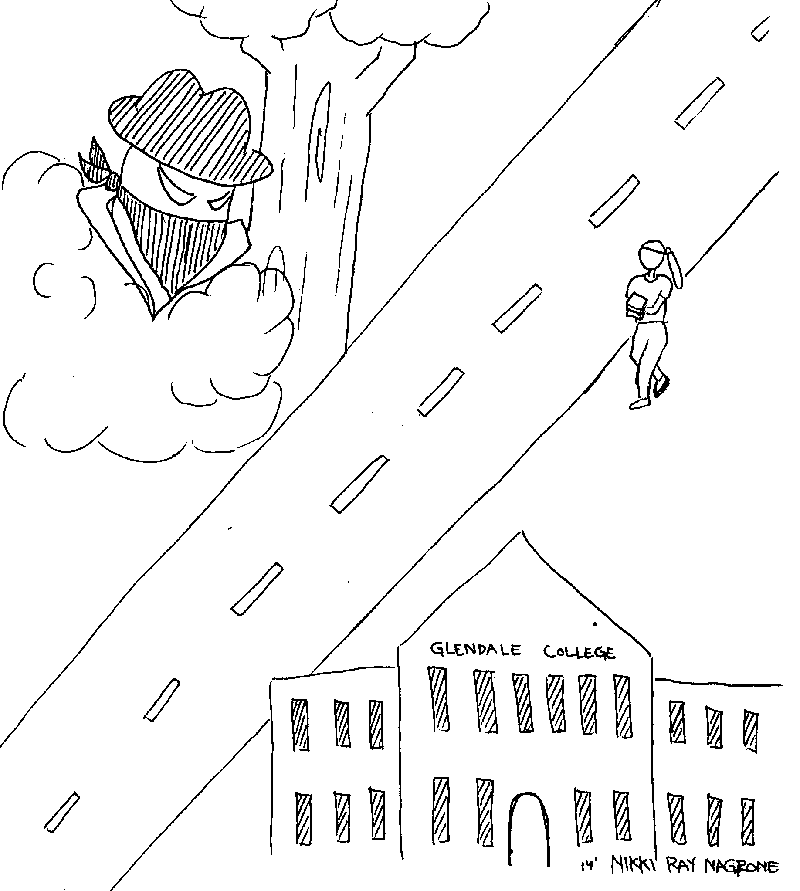Stories of stalkers and killers are the stuff of horror movies, addictive crime shows, and those Lifetime movies mothers cannot seem to get enough of. Yet, when people are stalked in real-life it becomes all too eerie.
Despite the invasion of privacy and viable threats victims face, stalking was not considered a crime until 1990. Prompted by a series of high-profile stalking cases and attacks, including one that ended in the murder of actress Rebecca Schaeffer by John Bardo, Municipal Judge John Watson of Orange County drafted a law that made stalking a crime under Penal Code Section 646.9.
The code defines a stalker as “any person who willfully, maliciously, and repeatedly follows or willfully and maliciously harrases another person.” Furthermore, the stalker makes a credible threat with the intent to place that person in reasonable fear for their safety, or the safety of their immediate family.
About three years ago, a student at GCC allegedly experienced these fearful conditions when she encountered two stalkers.
Choosing to remain anonymous, she mostly experienced fear, which was difficult to deal with and led to a change in routine, an action typical of stalking victims. She even dropped classes to avoid being on campus at night.
“It was terrifying to be here at late hours,” she said.
Although the alleged stalker never made a verbal threat, she recalls him following her around campus for an entire day and later on her way to The Coffee Bean, where she said he came up behind her, gave her a hug, and blocked her from leaving her seat. He proceeded to shake a toy in her face and, when she refused to accept it, caused another customer to intervene.
When she finally told friends about what was going on, they reacted by saying that she was just being overly dramatic. They claimed she exaggerated the situation, implying that she actually liked the attention.
“You know you like it,” they told her. “Why are you complaining about it?”
Unfortunately, the incident was never reported.
The campus Chief of Police, Gary Montecuollo, said that following one’s instincts is crucial when someone feels they are being stalked.
“If you feel uncomfortable, go with your gut,” he said. “Don’t try to talk or explain it away.”
With a zero tolerance policy implemented by the department, Montecuollo believes that stalking should be taken seriously and reported in a timely manner. This way, police can look into it and have records of stalking complaints to verify a pattern. No reports of stalking on campus have been made thus far.
Montecuollo said that when students fear they are being stalked, they should file a report with campus police. Reports can be made anonymously with a phone call to Crime Stoppers at (818) 507-7867, or through an email to anyone in the police department.
Complaints can also be filed in person. A police officer can be dispatched to anywhere on campus to make a report. It may also be filed from the safety and privacy of a student’s own home.
To aid campus police in their investigation, it is helpful to provide a description of the individual, the reason why a student feels they are being stalked, and the location the individual is usually seen as well as the time of day. Any particular clothing they wear, any scars or any tattoos the person has also help to identify who may be stalking someone.
According to The National Center for Victims of Crime, it is most often someone the individual knows, an acquaintance, a relative, or even an intimate partner,who stalks the victim.


